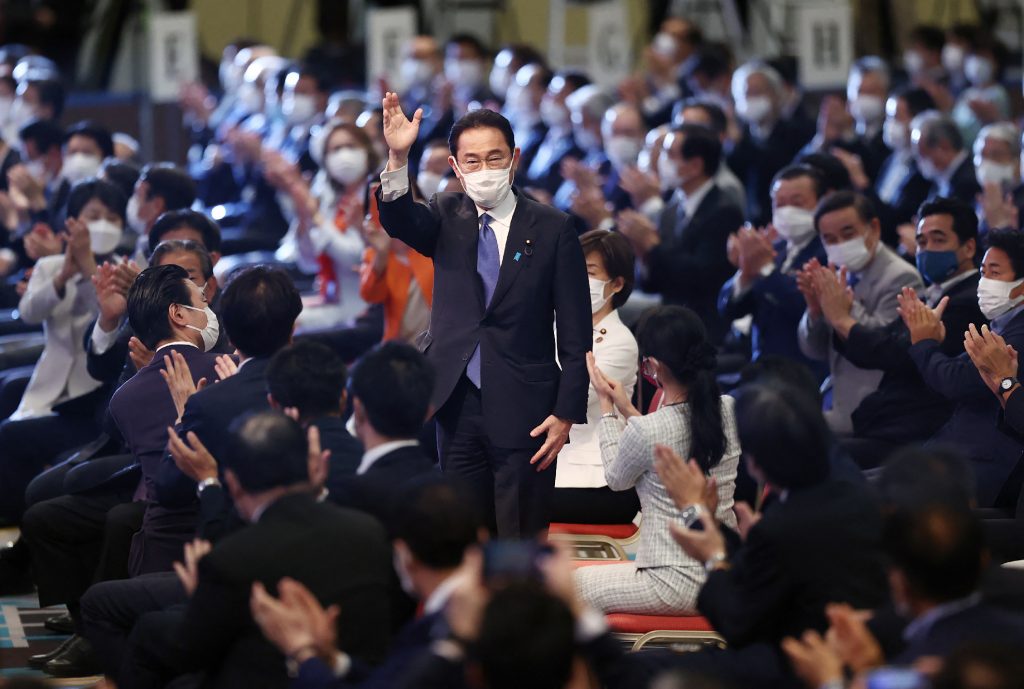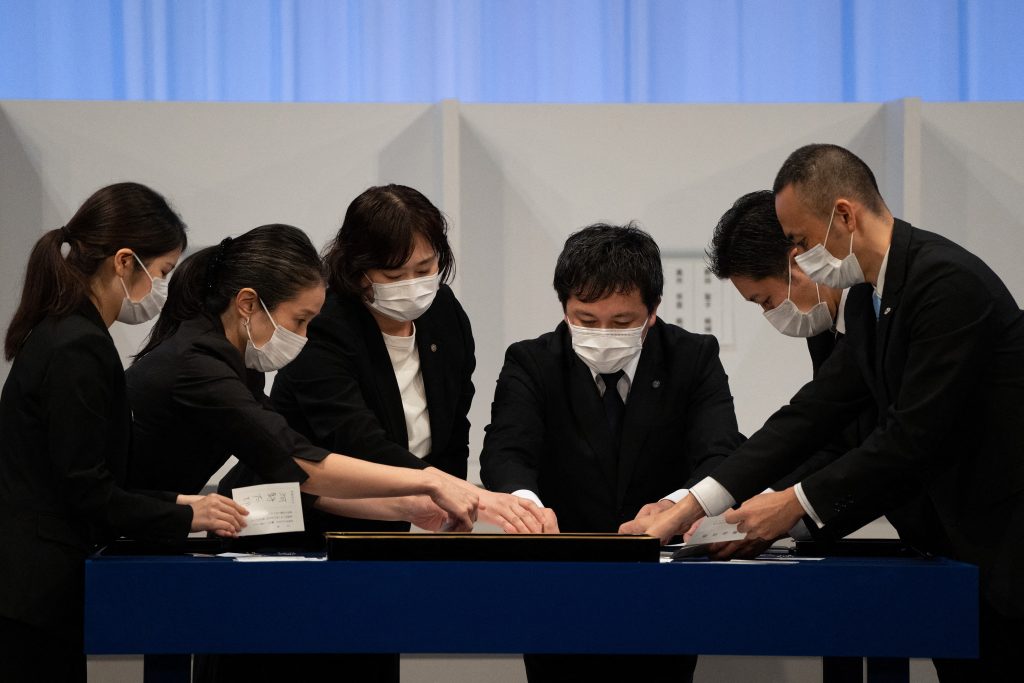



TOKYO: Japan’s former Foreign Minister Fumio Kishida has won the governing party leadership election and is set to become the next prime minister.
Kishida replaces outgoing party leader Prime Minister Yoshihide Suga, who is stepping down after serving only one year since taking office last September.
Fumio Kishida gave a speech following his victory, thanking the three candidates and outgoing Prime Minister Suga.
“Many people were voicing desperately that they couldn’t hear politics and that they couldn’t believe politics. I felt a strong sense of emergency that Japan is in a crisis of democracy, so I announced my candidacy for the presidency earlier than anyone else.”
Kishida stressed his intention to tackle the COVID-19 pandemic and said, “we must work out measures that will cost billions of trillion yen by the end of the year. In the future, there are many important issues related to Japan’s future, such as new capitalism, the realization of a ‘free and open Indo-Pacific’ and measures to deal with the declining birth-rate. I’m going to start working with all my strength from today.”
Kishida also called on all party members and Diet members to work together.
As new leader of the Liberal Democratic Party, Kishida is certain to be elected the next prime minister on Monday in parliament, where his party and coalition partner control the house.
Kishida beat Taro Kono, the vaccinations minister, in a runoff after moving ahead of two female candidates Sanae Takaichi and Seiko Noda in the first round.
Japan’s governing party vote to pick a new leader entered a second round Wednesday, with the presumed next prime minister facing imminent, crucial tasks such as addressing a pandemic-hit economy and ensuring a strong alliance with Washington amid growing regional security risks.
In the first round, former Foreign Minister Fumio Kishida came in first with 256, only one vote ahead of Taro Kono, the vaccinations minister, but failed to win a majority and moved to a runoff between the two.
Among the two female candidates, unusual for male-dominated Japanese politics, ultra-conservative Sanae Takaichi and liberal-leaning Seiko Noda won 188 votes and 63 votes respectively, dropping out of the race.
Kishida, who has more support from party heavyweights’ support, is believed to be in a better position than Kono in a runoff, which largely reflects a party power struggle.
The new leader also needs to change the party’s high-handed reputation, worsened by the outgoing Prime Minister Yoshihide Suga who angered the public over his handling of the coronavirus pandemic and insistence on holding the Olympics in Tokyo this past summer.
The long-ruling conservative Liberal Democratic Party desperately needs to quickly turn around plunging public support ahead of lower house elections coming within two months, observers say.
Wednesday afternoon’s vote includes only LDP parliamentarians and grassroots members, and results will be known within hours. Whoever wins the LDP election will become prime minister because the party has control of parliament. The vote there is expected next Monday and the new prime minister would form a new Cabinet later that day.
At a Tokyo hotel, lawmakers cast their votes one by one in a ballot box on stage when their names were called.
Kono, known as something of a maverick and a reformist, supports eventually phasing out nuclear energy, while Kishida calls for growth and distribution under his “new capitalism,” saying Abe’s economic policy only benefited big companies. Takaichi, by far the most hawkish who wants greater military capability and spending, promised to visit the controversial Yasukuni Shrine. Noda pushed for women’s rights and diversity.
Overall, little change is expected in key diplomatic and security policies under the new leader, said Yu Uchiyama, a political science professor at the University of Tokyo.
All of the candidates support close Japan-U.S. security ties and partnerships with other like-minded democracies in Asia and Europe, in part to counter China’s growing influence.
Analysts think Suga lost support because of party complacency and an increasingly high-handed approach forged during Abe’s long leadership.
Wednesday’s vote is seen as a test of whether the party can move out of Abe’s shadow. His influence in government and party affairs has largely muzzled diverse views and shifted the party to the right, experts say.
The party vote could also end an era of unusual political stability and return Japan to “revolving door” leadership.
“Concern is not about individuals but stability of Japanese politics,” Michael Green, senior vice president for Asia at the Center for Strategic and International Studies, told a telephone briefing Tuesday. “It’s about whether or not we are entering a period in Japanese politics of instability and short-term prime ministership,” he said. “It makes it very hard to move forward on agenda.”
Kono is favored by the public but lacks solid backing of the party’s conservative heavyweights, which may set him up for a short-term premiership, while Kishida is seen as a choice who could lead government longer.
Suga is leaving only a year after taking office as a pinch hitter for Abe, who suddenly resigned over health problems, ending his nearly eight-year leadership, the longest in Japan’s constitutional history.
AP